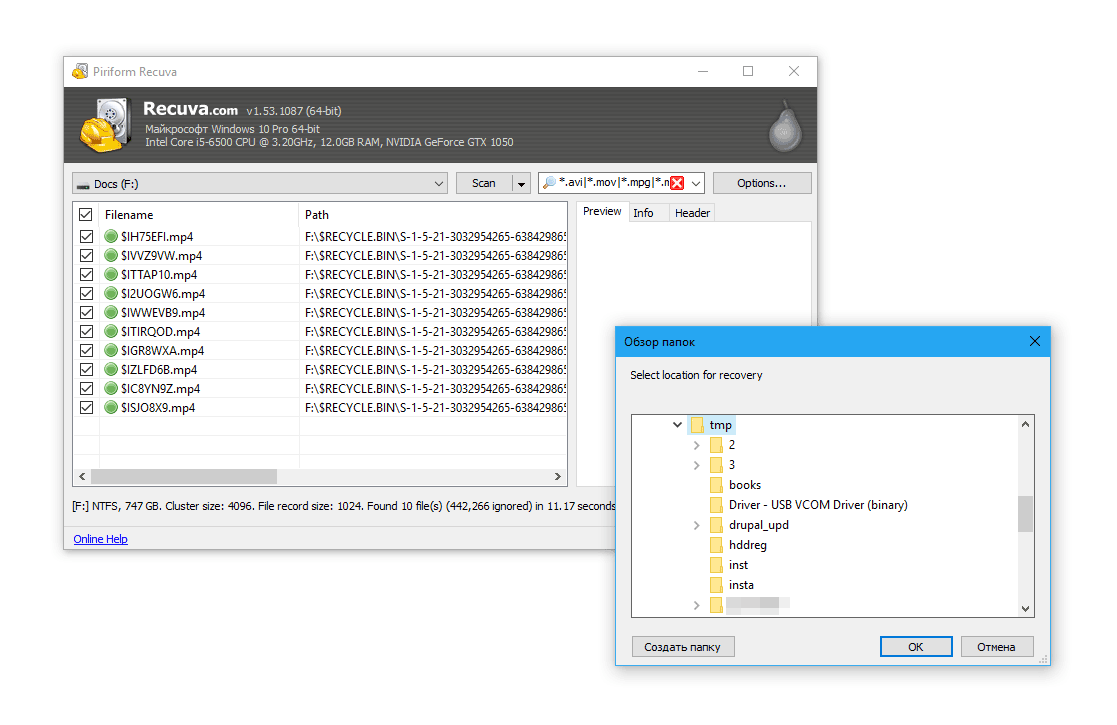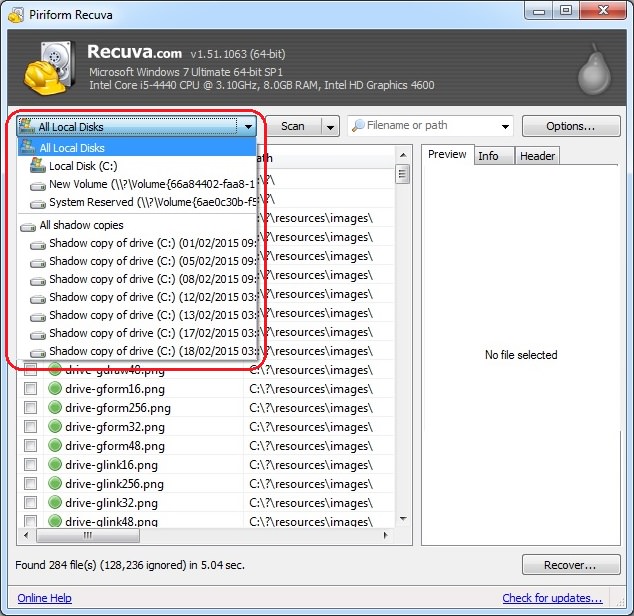
This isn't always available, but it does give you a good idea of what happens to files after they are erased or reformatted. For example, this program can tell you if it was overwritten, removed from the hard drive, corrupted and so on.

Recuva can also show what happened to the scanned file since it was deleted. Even if it's a low chance, there's no harm in trying to restore the file if you're given the chance. The longer the file is erased, the more fragmented and corrupted it becomes. A file that was erased a day or two ago is more likely to be recovered that a file from a hard drive that crashed last month. Along with this it will also show where the file is, how large it is, when it was last changed and the likelihood of it being properly recovered. The scan will bring up all recoverable files from the location. This will make the scan significantly longer, but you may also discover other files you didn't know were missing. This will make the scan faster and more accurate, but you can run a scan without answering either of these questions. The program will ask you where to scan and what you're looking for. You'll start by initiating a scan for the file you're looking for. This program is one of the easiest to use because it all works with a wizard and only asks you for simple inputs.

Some recovery programs are difficult to use, but not Recuva.

This program has a high accuracy rate and is often able to find the file you're looking for. It can restore all types of files like images, text documents, videos and more. Recuva is a program that is able to restore deleted or lost files from your hard drive.


 0 kommentar(er)
0 kommentar(er)
